- News
LaterMost ReadDistinctiveRohingya News Agency: Myanmar: Tens of thousands of Rohingya people - who remain deprived of a nationality - displaced by “clearance operations” amid reports of unlawful killings, indiscriminate firing on civilians, ...
- Issues
Most ReadDistinctive
- Books
- Documents
LaterMost Read
- Figures
- Entries
Most ReadDistinctiveShwe Maung, Former Myanmar MP November 15, 2016 Myanmar Security Forces are enjoying to kill Rohingyas including children, rape women and torching and destruction Rohingya houses and villages after the " October ...
- Arakan
Myanmar Wants US to Stop Referring to 'Rohingya'
Thursday | 05/05/2016 - 12:57 PM
Rohingya News Agency - VOA
Myanmar wants the U.S. Embassy to stop using the term "Rohingya," when referring to the country's unrecognized ethnic minority, a government official told VOA Wednesday.
"We will be happy if the embassy refrains from using this term," said Aung Lin, permanent secretary of the Ministry of Foreign Affairs. Continued use of the word "will not be helpful to us," he added.
The official said, however, he is "not aware yet" whether the ministry on Tuesday made a formal request to the embassy about the terminology.
The embassy Wednesday declined to clarify whether there had been such communication the previous day, as reported by media. An embassy spokesman in Yangon, who did not want to be named, told VOA, "We do not comment on our diplomatic discussions with the government."
U.S. Ambassador Scot Marciel, in an April 28 news conference, however, rejected eschewing the term even if Myanmar's government will not use it, saying it is normal practice for the United States and the international community to recognize that "communities anywhere have the ability to decide what they should be called. And normally when that happens we would call them what they want to be called. It's not a political decision; it's just a normal practice."
The embassy has faced criticism from Myanmar's nationalists since it issued a statement of condolence after an April 19 maritime accident in which as many as 40 Rohingya drowned.
The victims were traveling to a market and a hospital from a camp for internally displaced people in western Rakhine state.
The embassy's statement linked the tragedy to restrictions on basic services in the state, which it said "can lead to communities unnecessarily risking their lives in an attempt to improve the quality of life."
Myanmar's government claims those calling themselves Rohingya are Bengalis who have illegally entered the country.
Myanmar, a predominately Buddhist country, has received international criticism for its treatment of the mainly Muslim minority, which is largely denied citizenship and many other basic human rights.
There had been expectation abroad that the plight of the Rohingya might improve after Nobel Peace Prize Laureate Aung San Suu Kyi's National League for Democracy took power last month.
Others have pointed out, however, that neither Aung San Suu Kyi nor any of her deputies gave any indication - before or after the NLD's landslide victory last year - there would be policy changes concerning the Rohingya different from the situation under Myanmar's military-led governments.
The United Nations Special Rapporteur for Human Rights, early last month, gave Myanmar's incoming civilian government 100 days to improve living conditions for the Rohingya.
The United Nations has repeatedly called for Myanmar to provide full rights for Rohingya, nearly all of whom were stripped of their citizenship in 1982, losing most of their rights to education, services and freedom of movement.
U.N. agencies estimate one tenth of the Rohingya population has fled Myanmar in the past four years following a 2012 outbreak of religious violence that left more than 200 dead.
A fire swept through one predominately Rohingya camp in rural Sittwe on Tuesday, destroying or badly damaging structures housing about 2,000 people, according to the U.N. Office for the Coordination of Humanitarian Affairs (OCHA).
At least 14 people were injured by the fire in the Baw Du Pha 2 Muslim IDP camp, which appears to have resulted from a cooking accident, according to OCHA, which added it could not verify unconfirmed reports of fatalities.
"Local and humanitarian organizations are supporting the authorities in responding to immediate needs in medical aid and shelter, and in the coming days in assessing and responding to humanitarian needs such as food, water and sanitation, and other basic necessities," said a statement issued by the U.N. agency.
التعليـــقات
Comments published does not reflect the opinion of the agency, but reflect the opinion of their owners

New Agency
Articles
Books
Mailing List
Search























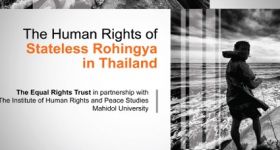








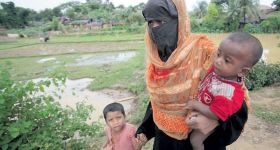










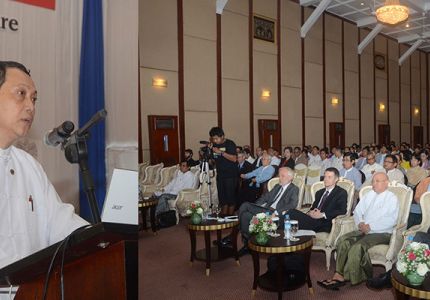

 Bangladesh, Myanmar agree to discuss return of Rohingya
Bangladesh, Myanmar agree to discuss return of Rohingya








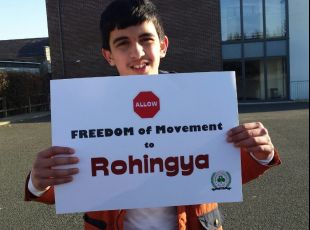
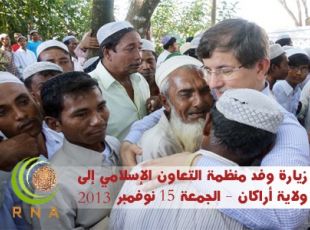
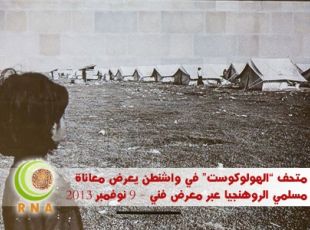





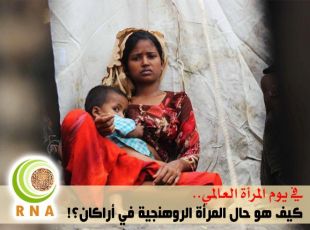


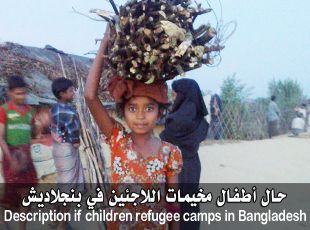














 Report: The Human Rights of Stateless Rohingya in Thailand
Report: The Human Rights of Stateless Rohingya in Thailand

